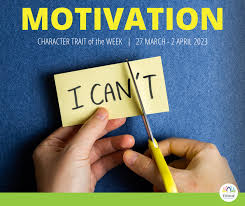If They Wanted To, They Would: Understanding Motivation and Action

In the realm of human behavior, the phrase “if they wanted to, they would” encapsulates a fundamental aspect of decision-making and action. It speaks to the notion that individuals possess the capability to achieve goals or take certain actions if they are sufficiently motivated. This concept touches upon psychology, sociology, and even philosophy, exploring questions of intentionality, agency, and the complex interplay between desire and action.
Understanding Motivation
At the heart of “if they wanted to, they would” lies the concept of motivation. Motivation is the driving force behind human behavior, influencing our actions, decisions, and goals. Psychologists have long studied motivation to understand what compels individuals to act in certain ways and not in others.
- Intrinsic vs. Extrinsic Motivation:
- Intrinsic motivation arises from within an individual, driven by personal satisfaction or enjoyment derived from the activity itself.
- Extrinsic motivation, on the other hand, involves external rewards or pressures that drive behavior.
- Motivation and Goal Setting:
- Setting clear goals is often a catalyst for motivation. Goals provide direction, focus, and a sense of purpose.
- The achievement of goals is closely tied to the belief that “if they wanted to, they would,” as it implies a commitment to pursuing and accomplishing what one sets out to do.
The Role of Agency
Agency refers to the capacity of individuals to act independently and make their own choices. It intertwines with motivation in the context of determining whether someone will indeed act upon their desires or intentions.
- Sense of Agency:
- Individuals with a strong sense of agency are more likely to take initiative and pursue their goals.
- Conversely, a lack of agency may result in inaction or a perceived inability to achieve desired outcomes.
- External Factors vs. Personal Responsibility:
- Societal, economic, and environmental factors can influence an individual’s sense of agency.
- However, personal responsibility suggests that ultimately, individuals have the power to shape their own destinies.
Barriers to Action
Despite motivation and agency, barriers often impede individuals from acting upon their desires. These barriers can be psychological, social, or situational, presenting challenges that must be overcome to translate intention into action.
- Psychological Barriers:
- Fear of failure, self-doubt, or procrastination can undermine motivation.
- Overcoming these barriers requires introspection, self-awareness, and sometimes external support.
- Social and Cultural Factors:
- Societal norms, peer pressure, and cultural expectations may shape behavior and limit individual autonomy.
- Addressing these factors involves challenging societal norms and fostering environments that support personal agency.
Case Studies and Real-World Applications
Exploring real-world examples can illustrate how the concept of “if they wanted to, they would” plays out in various contexts:
- Career Advancement:
- Individuals motivated by career success often take proactive steps to acquire skills, seek promotions, or change professions.
- The realization of career goals underscores the proactive role of motivation and agency in professional development.
- Health and Wellness:
- Adopting a healthier lifestyle requires motivation to exercise regularly, eat well, and manage stress.
- Personal responsibility for health choices exemplifies the adage that individuals act when sufficiently motivated to do so.
Philosophical Considerations
Philosophers have debated the nature of human action and free will for centuries, contributing to our understanding of agency and motivation:
- Determinism vs. Free Will:
- Determinism posits that all events, including human actions, are determined by prior causes.
- Free will suggests that individuals possess the ability to make choices independent of external determinants.
- Existential Perspectives:
- Existentialist thinkers emphasize individual freedom and responsibility in shaping one’s existence.
- They argue that “if they wanted to, they would” reflects the existential struggle to define one’s purpose and act authentically.
Conclusion
The phrase “if they wanted to, they would” encapsulates the intricate dynamics of motivation, agency, and human behavior. It challenges us to consider what drives individuals to act on their intentions and how personal agency intersects with external factors. Understanding these concepts enriches our comprehension of decision-making processes and empowers us to cultivate motivation, overcome barriers, and achieve our goals. Ultimately, it highlights the profound connection between desire, intention, and action in shaping individual lives and broader societal outcomes.
In essence, “if they wanted to, they would” prompts reflection on the complexities of human motivation and the transformative power of personal agency in navigating life’s challenges and opportunities.





